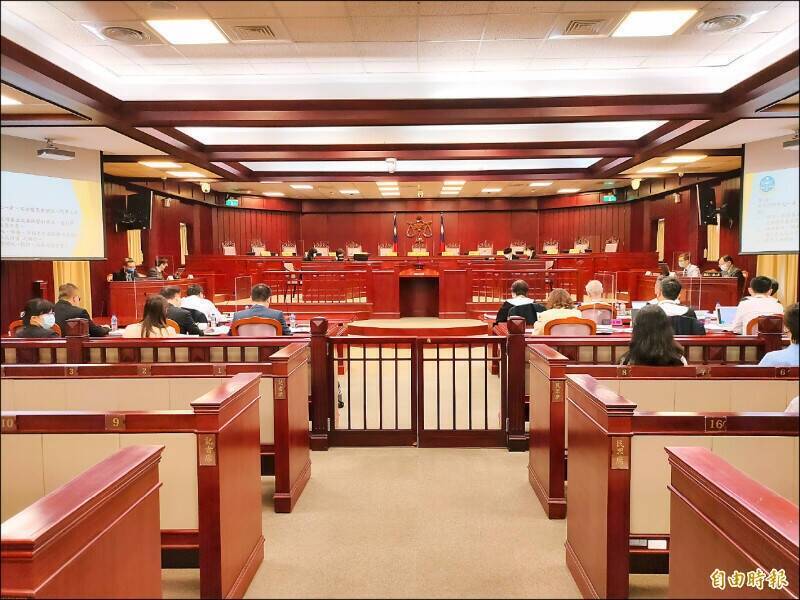The Constitutional Court dismissed the appeal of the male voice.
(file photo)
[Reporter Wu Zhengfeng/Taipei Report] On September 15, the Central Election Committee announced the "Electoral Epidemic Prevention Plan for 111 Local Public Official Elections and Constitutional Amendment Referendum in Response to Severe Specific Infectious Pneumonia". People who were diagnosed and quarantined went out to vote. A man surnamed Gu questioned that the provision violated the suffrage guaranteed by the Constitution. On the 25th, he applied for constitutional interpretation and asked for a preliminary ruling to allow the temporary punishment of voting, but because the plan is not "Constitutional Procedure Law" The Constitutional Court quickly made a ruling of "inadmissible" on the 26th.
Gu Nansheng asked for the interpretation of the constitution and advocated that the nine-in-one public officials and citizens’ referendum announced by the Central Election Committee on September 15 should be in response to the Wuhan pneumonia election epidemic prevention plan. "Referendum case" voting, infringing on his suffrage rights guaranteed by Article 17 of the Constitution as an interested party; and because of the urgency of this case, the Constitutional Court should make a temporary sanction to allow voting in accordance with the law.
Please read on...
Gu Nan petitioned for constitutional interpretation on the 25th, and the Constitutional Court quickly made a ruling on the 26th, pointing out that the requirements of Gu Nan's petition were inconsistent with the acceptance requirements of the Constitutional Procedure Law, and decided not to accept it.
The Constitutional Court explained that the China Election Committee's epidemic prevention plan is not a "legal norm" or "judgment" as stipulated in the Constitutional Procedural Law, and Gu Nan has not been adversely affected by the plan to determine the final judgment, so he cannot appeal for legal norms and judicial constitutional review, so this petition does not conform to the acceptance regulations, and it is ruled to be inadmissible, and its petition for provisional disposition is rejected at the same time.
The case was handled by the Fourth Review Chamber of the Constitutional Court, and its members were Chief Judge, Wu Chenzhen, Chief Justice Huang Zhaoyuan, and Chief Justice Lu Tailang.
